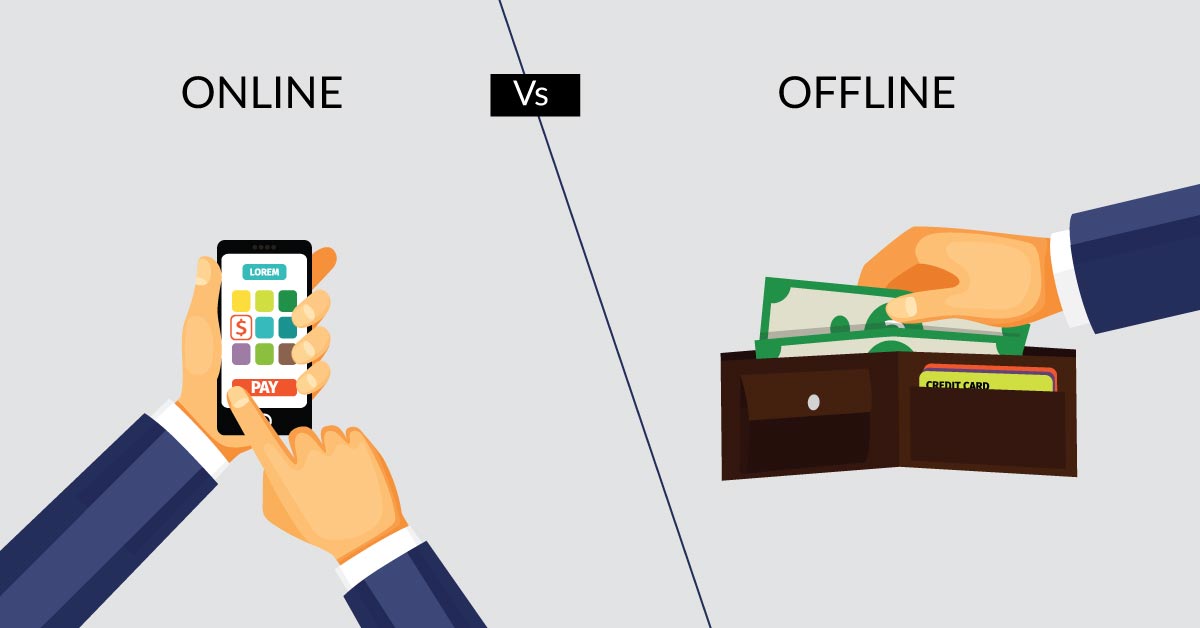Insurance is a contract between an individual or an entity (known as the insured) and an insurance company (known as the insurer). It is a risk management tool that provides financial protection against potential losses or damages in exchange for regular premium payments.
The concept of insurance is based on the principle of spreading risk among a large number of individuals or entities. Policyholders pay premiums, and in return, the insurer agrees to compensate them for covered losses or damages as outlined in the insurance policy.
Offline Insurance: Offline insurance refers to the traditional method of purchasing insurance through physical interactions with insurance agents, brokers, or representatives. This involves visiting a local insurance office, meeting with an agent in person, and completing the paperwork manually. Offline insurance also includes purchasing insurance through telephone conversations or mailing application forms.
Online Insurance: Online insurance, also known as digital or e-insurance, involves purchasing insurance products and managing policies entirely through online platforms, websites, or mobile applications. Customers can compare quotes, purchase policies, make premium payments, and file claims online.
Which insurance is more costly online or offline

In general, online insurance tends to be more cost-effective compared to offline insurance. There are several factors that contribute to this cost difference:
- Reduced Overhead Expenses: Online insurance providers often have lower overhead costs compared to offline insurers. They don’t need to maintain physical offices or employ as many staff members, which allows them to pass on cost savings to customers in the form of lower premiums.
- Direct Distribution Model: Online insurance providers typically follow a direct distribution model, meaning they directly sell insurance products to customers without involving intermediaries such as agents or brokers. This eliminates the need for agent commissions, which can contribute to lower premium costs.
- Increased Competition: The online insurance marketplace is highly competitive, with numerous insurance providers vying for customers’ business. This competition often leads to competitive pricing and promotional offers to attract customers, resulting in lower premiums compared to offline insurance.
- Efficient Processes: Online insurance platforms leverage technology and automation to streamline processes, such as policy issuance, claims filing, and customer service. This efficiency helps reduce administrative costs and enables cost savings, which can be reflected in lower premiums.
Insurance Quotes

- Online Insurance Comparison Websites: There are various online
platforms that allow you to compare insurance quotes from multiple
insurance providers in one place. You typically fill out a form with
your personal information and insurance needs, and the platform provides
you with quotes from different insurers. Some popular comparison
websites include:
- Insurance.com
- Policygenius
- The Zebra
- Compare.com
- Insurance Company Websites: Most insurance companies have their own websites where you can request a quote directly. You can visit the websites of insurance providers that interest you and navigate to their “Get a Quote” or similar section. You’ll need to provide relevant information about yourself and the coverage you’re seeking to receive a quote.
- Contacting Insurance Agents or Brokers: If you prefer a more personalized approach, you can reach out to insurance agents or brokers who represent multiple insurance companies. They can gather information about your insurance needs and provide you with quotes from the insurers they work with.
When requesting insurance quotes, it’s important to provide accurate and complete information to ensure the quotes are as accurate as possible. Be prepared to provide details such as your personal information, the type of coverage you need, any relevant information about your property or vehicles, and any specific requirements you may have.
Remember, insurance quotes are estimates based on the information provided, and the final premium may vary based on factors such as underwriting evaluation, policy terms, deductibles, and other considerations. It’s advisable to review the coverage details, terms, and conditions before making a decision and to consider factors beyond just the price, such as the reputation and financial stability of the insurer, customer service, and policy features.